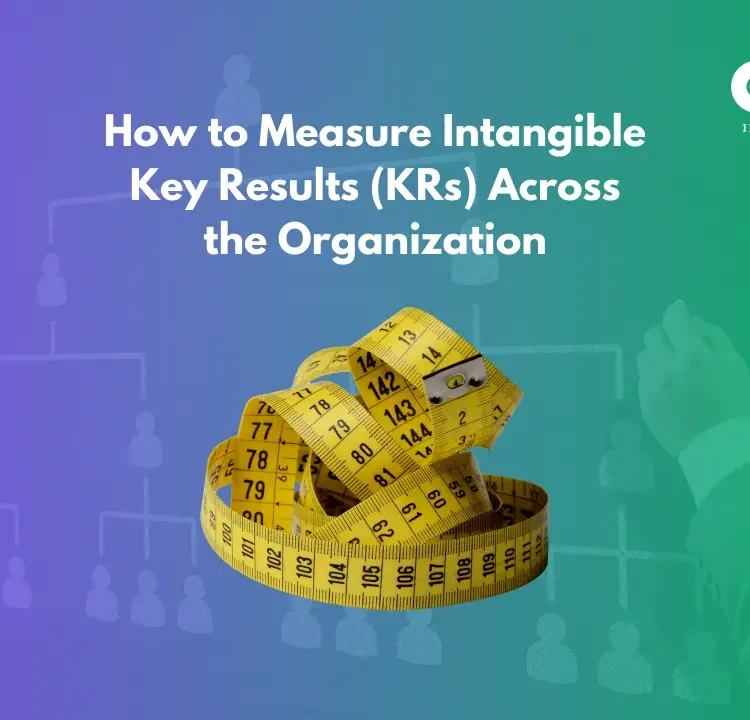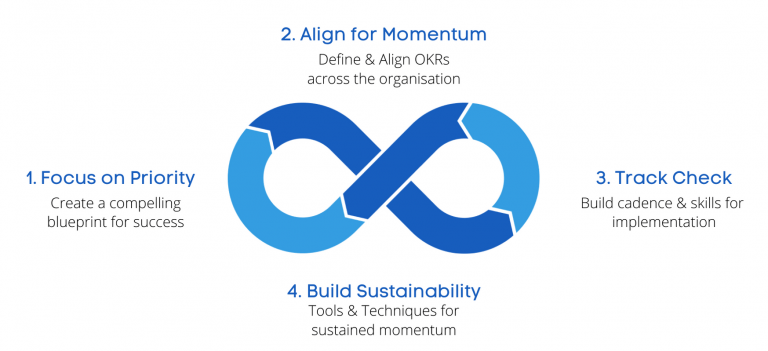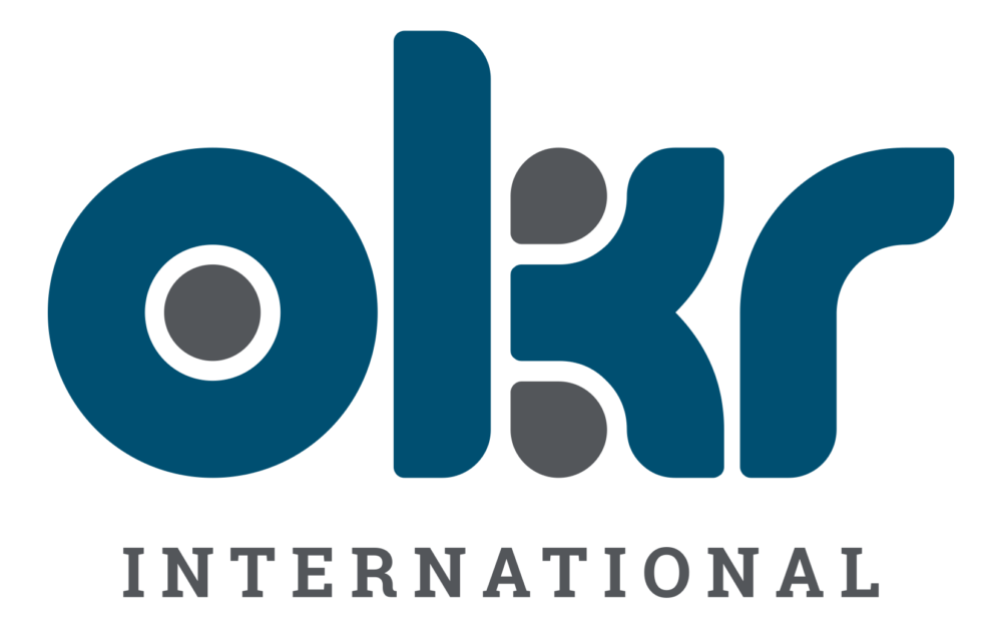OKR-BOK™
The OKR Body of Knowledge (OKR-BOK™) is the world’s most comprehensive and structured framework for mastering Objectives and Key Results. Developed by OKR International, it defines the core framework, principles, processes, skills and ethical guidelines that set the gold standard for OKR practice. Whether you are implementing OKRs internally or coaching clients, the OKR-BOK™ equips you with the clarity, credibility, and capability to drive strategic alignment and execution excellence.
OKR-BOK™
The OKR-BOK™ (Objectives and Key Results Body of Knowledge), developed by OKR International in 2020, is a comprehensive guide designed to help organizations adopt, implement, and master the OKR framework. The OKR-BOK™ provides a structured approach for organizations and practitioners to understand the principles, processes, skills, methods, tools, and ethical guidelines necessary for successfully applying OKRs. By offering a standardized methodology, it enables organizations to drive high performance, align goals with strategic objectives, and track progress effectively.
The OKR-BOK™ is an essential resource for organizations looking to successfully implement the OKR framework. It provides a structured approach to setting, tracking, and achieving organizational goals while developing key skills that ensure effective implementation. With its focus on transparency, alignment, and continuous improvement, the OKR-BOK™ helps organizations drive performance, foster a high-performance culture, and achieve measurable success.
While the OKR framework is inherently open-source and adaptable, enabling organizations to tailor their approach to diverse needs and contexts, the OKR-BOK™ establishes essential boundaries and standards that ensure consistency and efficacy in implementation. By defining a standardized methodology for setting, tracking, and achieving objectives, the OKR-BOK™ provides the necessary guidance for organizations to harness the flexibility of OKRs without compromising on accountability, transparency, and alignment with strategic goals.
Introduction
The OKR-BOK™ is an established body of knowledge curated by OKR International. It provides a structured framework that helps organizations and OKR practitioners implement the OKR methodology. The framework focuses on defining measurable objectives, tracking key results, and ensuring alignment across teams, departments, and the broader organization.
Created in 2020 by OKR International, the OKR-BOK™ serves as a centralized knowledge repository, offering guidance, best practices, and frameworks to ensure that OKRs are effectively used to drive organizational success. It enables practitioners to align individual and team-level goals with the organization’s strategic vision while providing actionable methodologies to track progress and measure success.
This structured approach not only enhances alignment and performance but also cultivates a culture of transparency and continuous improvement, ensuring that every OKR initiative contributes effectively to the organization’s long-term success.
Core Components
The OKR-BOK™ is built on five critical components that collectively ensure successful OKR implementation across an organization:
OKR Framework
The OKR Framework is the foundation of the OKR-BOK™ and provides a structural blueprint for setting and achieving goals. It translates strategic vision into measurable objectives and key results.
OKR Principles
The OKR Principles serve as the "rules of engagement" for crafting and managing OKRs. They define the standards, syntax, and best practices required to create effective OKRs.
OKR Process
The OKR Process outlines a systematic approach for planning, implementing, and reviewing OKRs. It includes detailed steps for each phase—from initial planning to ongoing monitoring and adaptation.
OKR Skills
OKR Skills encompass the competencies needed to effectively set, implement, and refine OKRs. These skills form the crux of OKR conversations and serve as the bloodline connecting various aspects of OKRs.
Ethical Guidelines
The Ethical Guidelines set the standard for behavior and professional conduct in all OKR-related activities. They cover client interactions, professional performance, and respect for intellectual property.
OKR Framework
OKR Framework
The OKR Framework is the foundation of the OKR-BOK™ and serves as the structural blueprint for setting and achieving organizational goals. It is designed to help organizations translate their strategic vision into measurable objectives and key results.
Why This Component is Critical?
It ensures a clear and systematic approach to goal setting, execution, and tracking. This framework guarantees alignment at all levels and maintains momentum through regular check-ins and performance reviews.
Focus on Priority
Identifying and defining key organizational priorities and aligning them with the company’s vision, mission, and values. This ensures that efforts are concentrated on the most important objectives.
Align for Momentum
Establishing transparent, engaged systems that ensure alignment across all teams. This includes creating buy-in from leadership, training teams on OKRs, and validating key results to ensure alignment with strategic goals.
Track Check
Regularly reviewing progress, holding team members accountable, and ensuring that execution remains on track. This stage involves regular check-ins and performance assessments to ensure progress toward key results.
Build Sustainability
Establishing systems and resources to ensure the long-term success of the OKR process, including guides, templates, job descriptions for OKR champions, and continuous support systems for teams.
OKR Principles
The OKR Principles serve as the “rules of engagement” for crafting and managing OKRs. They define the standards, syntax, and best practices required to create effective OKRs.
Why This Component is Critical?
They prevent ambiguity and misalignment by establishing clear guidelines. These principles promote consistency in OKR creation and management, ensuring that every team and department shares a common understanding of how to apply OKRs.
DNA of OKRs
The fundamental components of OKRs—objectives, key results, and initiatives—form the basis for creating clear, actionable, and aligned goals.
OKR Standards
These standards define what constitutes a good OKR, ensuring that objectives are achievable, measurable, and aligned with the broader strategy.
OKR Syntax
Clear and consistent language is essential for defining OKRs. The OKR-BOK™ outlines the appropriate syntax for writing and tracking OKRs effectively.
OKR Setting Guidelines
Best practices for crafting various types of OKRs, balancing competing priorities, and ensuring alignment at different levels within the organization.
Ambition & Stretch
A principle emphasizing the importance of setting bold, aspirational objectives that push teams beyond their comfort zones while remaining realistic about the outcomes.
Transparency & Alignment
Guidelines to ensure that OKRs are openly communicated across the organization, fostering alignment and shared accountability among all levels.
Iterative Learning & Adaptation
Incorporating a mindset of continuous improvement, where OKRs are regularly reviewed, learned from, and refined based on feedback and changing market conditions.
Outcome Focus
Emphasizing the shift from output to outcome, ensuring that OKRs drive meaningful results rather than simply completing tasks.
Cultural Fit
Recognizing how OKRs should align with and support the organization’s core values and culture, ensuring they are practical and sustainable within the specific organizational context.
OKR Process
The OKR Process outlines a systematic approach for planning, implementing, and reviewing OKRs. It includes detailed steps for each phase—from initial planning to ongoing monitoring and adaptation.
Why This Component is Critical?
This process transforms strategic vision into actionable goals. By managing the lifecycle of OKRs through defined steps, organizations can continuously measure and adjust their approach, thereby fostering a results-driven culture.
OKR Planning Process
A step-by-step approach to planning OKRs at the organizational, team, and individual levels by defining objectives and setting key results aligned with strategic vision.
OKR Implementation Process
Steps for putting OKRs into action, ensuring proper communication, alignment, and execution across all levels of the organization.
OKR Review Process
Regular review cycles and feedback mechanisms that measure progress, allow adjustments, and celebrate wins to maintain momentum.
Communication & Cascade
A dedicated process to ensure that OKRs are clearly communicated from leadership to teams and individuals.
Monitoring & Measurement
Setting up metrics, dashboards, and tracking systems to reinforce accountability and monitor ongoing progress.
Governance & Accountability
Establishing clear roles, responsibilities, and accountability frameworks to support OKR ownership and decision-making throughout the lifecycle.
Continuous Learning
Emphasizing structured feedback loops and learning mechanisms beyond the review phase to foster ongoing improvements and adaptability.
OKR Skills
OKR Skills encompass the competencies needed to effectively set, implement, and refine OKRs. These skills include strategic alignment, data-driven decision-making, conflict resolution, change management, and effective coaching.
Why This Component is Critical?
They empower practitioners to drive alignment and support teams in achieving their objectives. Skilled OKR practitioners adapt the methodology to their organization’s unique needs, significantly enhancing the overall impact of the OKR process.
Change Management
Helping clients navigate the organizational and emotional aspects of change during OKR implementation and refinement.
Strategic Alignment & Facilitation
The ability to synthesize organizational strategy and ensure that OKRs reflect a cohesive vision across all levels.
Data-Driven Decision Making
Analyzing performance metrics and outcomes to inform adjustments to OKRs.
Conflict Resolution & Negotiation
Techniques to address disagreements or misalignments during OKR discussions and implementation.
Establishing Client Agreement
Building strong partnerships by understanding client needs and aligning expectations regarding OKR initiatives.
Building Trust
Cultivating an environment of transparency and integrity that encourages open communication.
Growth Facilitator
Supporting client growth by setting ambitious OKRs, providing necessary resources, and celebrating successes.
Appreciative Listening™
Mastering the art of actively listening to understand client goals and context.
Maintaining Presence
Staying fully engaged and focused during OKR-related interactions to foster trust and clear communication.
Catalytic Questioning™
Asking powerful, thought-provoking questions that drive progress toward achieving goals.
Being an OKR Coach
Adopting a coaching mindset during OKR sessions and reviews to facilitate learning and continuous improvement.
Feedback/Feedforward Skills
Providing timely, constructive feedback as well as forward-focused recommendations that empower teams to improve and excel.
Ethical Guidelines
The Ethical Guidelines set the standard for behavior and professional conduct in all OKR-related activities. They cover client interactions, professional performance, and respect for intellectual property.
Why This Component is Critical?
They build trust and ensure transparency in every OKR initiative. Adherence to these guidelines reinforces the credibility of OKR practices and creates a respectful, safe environment for all stakeholders.
Ethical Conduct & Professional Integrity
Ethical Conduct & Professional Integrity for OKR Practitioners
Ensure Clients and Sponsors are fully informed about the nature, use, benefits, and limitations of OKRs, including confidentiality requirements, financial arrangements, and terms of engagement.
Create a formal agreement/contract before starting services that outlines the roles, responsibilities, rights, and expectations of all parties involved.
Maintain strict confidentiality with all parties in accordance with applicable data protection laws and mutually agreed-upon terms.
Clarify how information will be exchanged among all parties during the engagement, including scenarios where confidentiality cannot be maintained.
Securely manage, store, and dispose of all physical and digital data in a manner that protects privacy and complies with legal and professional standards.
Stay informed about emerging technologies used in the OKR field and ensure their ethical application.
Respect the right of any party to terminate the OKR coaching/consulting engagement at any time, as defined in the agreement.
Recognize and manage any power or status differences that may arise due to cultural, psychological, relational, or contextual dynamics.
Provide consistent quality of OKR training, coaching, or consulting services, irrespective of the compensation received.
Adhere to the OKR-BOK™ Ethical Guidelines in all professional interactions. Address suspected breaches by self or others through respectful dialogue and escalation to OKR International if unresolved.
Ensure that all internal and external support personnel adhere to the OKR-BOK™ Ethical Guidelines.
Commit to continuous personal, professional, and ethical development to uphold excellence in OKR practices.
Acknowledge and act on personal limitations or conditions that may affect professional performance. Seek support or suspend/terminate engagements when necessary.
Resolve conflicts of interest by working transparently with all relevant parties and seeking professional support where needed.
Accurately represent OKR qualifications, including competency, experience, certifications, training, and credentials.
Make only truthful and accurate statements—verbal or written—about services offered.
Communicate ethical standards clearly to stakeholders and raise awareness of responsibilities under the OKR-BOK™ Code.
Maintain professional boundaries by avoiding any sexual or romantic relationships with Clients or Sponsors. Take appropriate action if boundaries are crossed.
Uphold fairness and equality in all professional activities. Avoid all forms of discrimination and respect local laws and cultural norms.
Acknowledge and honor the intellectual property and contributions of others. Only claim ownership over original work and respect copyright and licensing agreements.
Professional Responsibilities
Ethical Conduct & Professional Responsibilities for OKR Practitioners
Ensure all relevant parties understand the nature and application of OKRs as a goal-setting and implementation framework, including the associated benefits, limitations, confidentiality requirements, financial terms, and other conditions of engagement.
Establish a formal agreement or contract prior to the commencement of services, clearly defining the roles, responsibilities, and rights of all parties involved.
Maintain the highest standards of confidentiality in all interactions, in full compliance with applicable laws governing personal data and communications.
Clearly define how information will be shared among all stakeholders during the OKR engagement, including circumstances under which confidentiality may be limited.
Manage, store, and dispose of all professional data—both physical and digital—in a manner that upholds confidentiality, security, and privacy, and complies with relevant laws and agreements. Ensure ethical use of technological tools in the delivery of OKR services.
Respect the right of any party to terminate the OKR coaching or consulting relationship at any time, in accordance with the terms outlined in the agreement.
Remain conscious of and actively manage any power or status imbalances that may arise due to cultural, relational, psychological, or contextual factors.
Deliver consistent quality in OKR training, coaching, and consulting engagements, regardless of the form or amount of compensation received.
Learn From Our Blogs

OKR Coach Certification: 27-28 June 2025
Become the Strategic Enabler Your Organization Needs by attending the OKR-BOK™ Certified Coach, the ultimate

¡Ahora en Español! Certifícate como OKR-BOK™ Certified Practitioner
Domina el sistema de OKRs más confiable del mundo, ahora completamente en español.

How to Measure Intangible KRs Across the Organization
How to Measure Intangible KRs Across the Organization: A Guide for Struggling with KR Quantification





